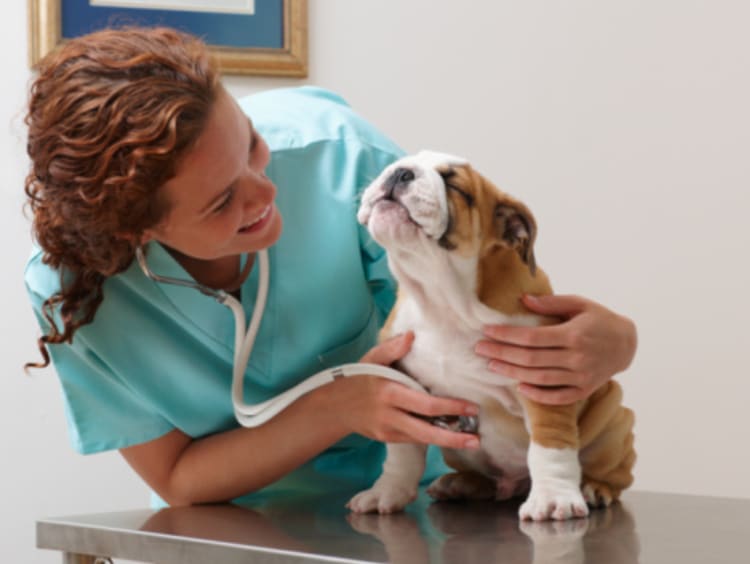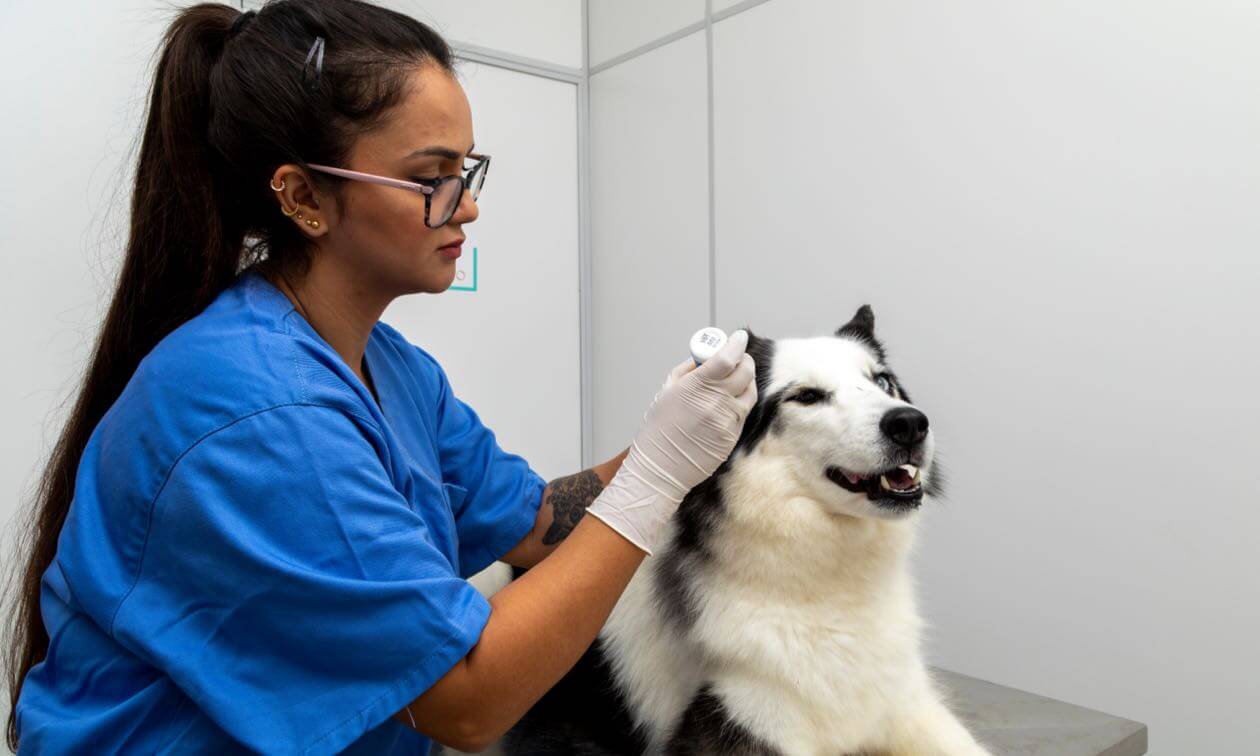Just How Emergency Vet Providers Can Offer Immediate Relief for Pet Health Dilemmas
Vaccination Guidelines From Your Trusted Veterinarian
Vaccination guidelines provided by your relied on veterinarian play a vital duty in protecting your animal's health and well-being. Core vaccinations are basic for all pets, while non-core vaccinations can be customized to environmental exposures and specific lifestyles. Recognizing the subtleties of inoculation schedules, which start as very early as six to eight weeks, is vital for optimum security. Additionally, dealing with typical mistaken beliefs surrounding vaccinations can better boost family pet owners' confidence in these safety nets. As we discover these essential elements, it ends up being progressively clear why regular appointments with your vet are crucial for notified decision-making.

Significance of Vaccinations
Vaccinations play a critical role in protecting animals against a range of avoidable diseases. By stimulating the body immune system to identify and deal with details virus, injections substantially decrease the incidence of infectious conditions that can influence an animal's wellness and durability. Not only do vaccinations shield specific animals, yet they additionally add to herd resistance, thus decreasing the general occurrence of diseases in the pet dog population.
Timely vaccinations aid to alleviate the spread of illness such as rabies, parvovirus, and distemper, which can have serious repercussions for both pet dogs and humans. Inoculations are frequently a need for boarding centers, grooming solutions, and dog parks, making them vital for those who desire to socialize their pet dogs.

Core Injections for Animals
While the specific inoculation requirements of animals can vary based on private factors, core vaccinations are widely advised to safeguard versus one of the most usual and significant conditions (Vet Enterprise). Core vaccines are those considered vital for all family pets, regardless of their way of living or geographic area, as they secure against very contagious and possibly fatal ailments
For canines, the core vaccinations include those for canine distemper, parvovirus, adenovirus (hepatitis), and rabies. Adenovirus can result in liver condition, while rabies is a zoonotic condition that positions a danger to both family pets and humans.
In felines, core vaccines include feline panleukopenia, feline calicivirus, feline herpesvirus (rhinotracheitis), and rabies. Feline panleukopenia is an extremely transmittable viral illness that influences the immune system and intestines. Calicivirus and herpesvirus are major contributors to upper respiratory system infections in pet cats, while rabies continues to be a vital concern for public health.
Consult with your veterinarian to ensure your pets get their core inoculations on time.
Non-Core Vaccines Explained
Non-core vaccinations are tailored to resolve details threats connected with a pet dog's way of living, direct exposure, and atmosphere to particular conditions. Unlike core injections, which are widely suggested for all family pets, non-core injections are thought about based on private conditions. These vaccinations are especially essential for pet dogs that might run into special pathogens as a result of their geographical place, travel behaviors, or tasks.
Examples of non-core vaccines consist of Resources those for Bordetella bronchiseptica, which is connected to kennel cough, and Lyme condition, brought on by ticks. Pet dogs that often interact with various other animals, such as those in boarding facilities, dog parks, or brushing atmospheres, may take advantage of Bordetella inoculation. If you live in an area where Lyme condition is prevalent, immunizing against this condition can be a prudent selection for outdoor-loving dogs.
Other non-core vaccines may consist of those for leptospirosis, canine influenza, and feline leukemia, depending on the details risk variables present. It is vital to have a complete discussion with your vet concerning your animal's lifestyle and the possible need for these injections, making certain a tailored inoculation method that ideal protects your furry close friend.
Vaccination Set Up Overview

As pets develop, it is very important to follow the advised booster vaccinations. Pet Health Checkup. For grown-up animals, core injections are typically provided every one to three years, depending on the certain vaccination and local policies. Non-core vaccinations might be recommended based on way of life variables and local condition prevalence, necessitating a tailored technique
Normal vet check-ups are vital for updating inoculation timetables. Your vet can provide guidance on the most ideal booster shots for your pet, factoring in age, health condition, and environmental risks. By staying positive and informed, animal owners can ensure their fuzzy buddies get reliable and prompt inoculations, therefore protecting their health and well-being throughout their lives.
Common Misconceptions About Injections
Mistaken beliefs concerning pet vaccinations can cause complication and unwillingness among animal proprietors relating to the booster shot process. One widespread myth is that vaccines are unneeded for interior animals. While it's real that interior pet dogs deal with lower risks, they are not entirely unsusceptible to illness, as microorganisms can be introduced via different ways, including human clothing and various other family pets.
Another misconception is that vaccinations can create the illness they aim to stop. In fact, a lot of vaccines have suspended or attenuated virus, which can not trigger disease in healthy and balanced animals. Some pet dog owners also believe that their pets must not be vaccinated if they are currently healthy; nonetheless, vaccinations are a proactive step that helps stop the onset of ailment.
In addition, lots of animal proprietors fear that injections will certainly bring about long-lasting health and wellness complications. While side impacts can happen, they are usually mild and short-term. The benefits of inoculation-- safeguarding pets from possibly deadly illness-- much outweigh the dangers. Recognizing these common myths is crucial for accountable family visit their website pet possession and ensuring the health and wellness of your hairy companions. Always consult your veterinarian for precise information tailored to your pet dog's details needs.
Final Thought
In summary, adherence to vaccination guidelines is vital for guaranteeing the health and wellness and durability of animals. Core injections give vital security against browse around here severe illness, while non-core vaccinations attend to certain dangers based on private way of livings. Developing a detailed inoculation routine, together with normal vet examinations, helps with optimal health management. Dispelling usual misconceptions surrounding vaccinations even more reinforces the importance of educated decision-making in family pet treatment. Inevitably, a positive approach to inoculations is crucial for preserving family pet well-being.
Not only do vaccinations secure specific pets, yet they also add to herd immunity, consequently decreasing the total frequency of diseases in the pet populace.
Mistaken beliefs regarding family pet inoculations can lead to complication and reluctance amongst pet proprietors regarding the immunization procedure. While it's real that interior pet dogs encounter lower dangers, they are not totally immune to diseases, as pathogens can be presented with numerous methods, including human garments and other pets.
Some animal owners additionally believe that their family pets need to not be vaccinated if they are already healthy and balanced; nonetheless, inoculations are a proactive step that assists protect against the onset of health problem.
The advantages of inoculation-- safeguarding family pets from potentially deadly diseases-- much outweigh the risks.